- Home
- Anne Bennett
A Little Learning Page 6
A Little Learning Read online
Page 6
As she approached the school she saw tennis courts positioned on either side of it, and a thrill ran through her as she realised that one day she might be there, playing tennis with other girls like herself. She looked up and saw the ornamental bushes decorating the front of the school and the wide stone steps that led up between them from the path. There were two newel posts at the bottom, decorated with stone balls, and a rail ran up either side and a balustrade along the top.
As Janet joined the girls going in, she almost ran back down the steps and told her mother she wanted to go home. But Betty knew her daughter and pressed her forward. ‘Go on,’ she hissed. ‘You have as much right to be here as anyone else,’ and Janet held her head high and mounted the last few steps to the front entrance hall.
Betty, however, was overawed by the whole place and only waited until Janet was taken into the hall before she wandered outside. She scarcely saw the tree-lined avenues she walked along, for her thoughts and prayers were for her daughter bent over the vital examination papers.
In actual fact, despite Janet’s unease at being inside Whytecliff School, she felt quietly confident that she had done well as she laid down her pen at the end of the third paper, although she recognised that the second part of the exam was much harder than the first had been.
She talked it over with Miss Wentworth that same evening. ‘I finished,’ she said, ‘but only just.’
‘Even the English paper?’
‘Even that since I’ve done so much work on timed essays.’
‘And you feel confident?’
‘In the exam room I did, but now I’m not so sure.’
‘Oh, Janet, believe in yourself!’ Claire cried in exasperation. ‘You have a good brain. Don’t use it to demean yourself.’
‘I don’t,’ Janet protested. ‘It’s just that I don’t know. I suppose I’m worried I’ll let them all down.’
‘You need to be taken out of yourself more,’ Claire said. ‘Come over tomorrow and we’ll go out for the day.’
‘If I can I will,’ Janet promised, ‘but it might be difficult.’
Claire’s eyes met Janet’s, but though they were puzzled, she didn’t ask questions, and Janet didn’t offer an explanation.
The following afternoon, Janet fought her way through the cold and blustery winter’s day with sleeting rain stinging her cheeks. Claire opened the door. ‘Come in,’ she said. ‘You must be freezing.’
Janet hung her sopping coat in the hall and followed Claire down the passage to the back room she tended to live in, rubbing her raw, freezing hands together.
‘It’s bitterly cold out there,’ she was saying, and then she stopped. There was a strange woman sitting in the chair by the fire that Miss Wentworth usually occupied. One of her legs was encased in plaster and raised on a cushion.
She turned and smiled, and Janet saw she was an older version of Miss Wentworth. ‘Hello, dear,’ she said. ‘You must be Janet. My daughter has told me so much about you. I slipped on the ice, I’m afraid, and have broken my leg. Such a nuisance, I know, but there it is. Claire has said I must stay here until I’m fully recovered.’
Janet felt a momentary flash of jealousy. She didn’t want to share their special times together. It was different at school, where Miss Wentworth was so scrupulously fair and was just as hard on Janet as on the others – harder if anything, never picking Janet for any particular job or privilege – but that was school; this was their special time. Here Miss Wentworth was totally hers.
She stared at the older woman, quite prepared to dislike her heartily. Then Mrs Wentworth disarmed her totally with a charming smile. ‘I’m sorry that you’ll have to put up with an old duffer like me, Janet. I hope I won’t spoil things too much.’
Janet was prevented from answering by the arrival of Claire with a tray of tea and sponge cake. ‘Good job we’d made no plans,’ Claire said, ‘and anyway, it’s a filthy day. As it turned out, after you left yesterday, Janet, Mom’s neighbour, who fortunately has a car, came to fetch me and take me to the casualty department of the General Hospital. They’d called an ambulance for Mom after they found her in the garden, unable to move, with her leg broken.’ She turned to her mother and said, ‘Honestly, Mom, what were you doing out in the pitch black?’
‘I told you,’ Mrs Wentworth said, ‘feeding the birds.’
‘In the middle of the night?’
‘Don’t exaggerate, dear, it was just after seven. I’d intended to fill the feeder earlier in the day when I saw it empty, but I’d forgotten. Birds feed at first light, you see, and they need so much food in this intense cold. And it is just outside the kitchen door.’
‘Well, it’s as well the Pritchards heard you, that’s all I can say,’ Claire said, ‘because if you’d lain outside all night …’
‘I wouldn’t be here now, I know,’ said Mrs Wentworth with a hint of impatience. ‘But I didn’t and I am here, and surely you’re not going to go on and on about it until my dying day.’ She turned to Janet, gave a wink and said, ‘Bossy, isn’t she?’
Janet thought that she could probably get to like Miss Wentworth’s mother very much, and she grinned back and said, ‘Yes, she is.’
‘Don’t encourage insurrection in my pupils, please,’ Claire said with mock severity. ‘I have quite enough trouble with this one already.’
‘I don’t believe it, my dear,’ Mrs Wentworth said, taking a large bite of sponge cake. ‘Come and sit here beside me, Janet, and we’ll have a chat. Either bring up a chair or sit on the rug nearer to the fire.’
Janet plonked down beside the older woman and said, ‘What do you want to talk to me about?’
‘Before we go any further,’ Mrs Wentworth said, ‘I know you have to call Claire Miss Wentworth. It’s to do with rules and discipline. Apparently school would fall into a crumbling ruin if children knew their teachers’ names.’
‘Mother!’ Claire burst out in exasperation.
Mrs Wentworth waved a dismissive hand in her daughter’s direction. ‘I’m not talking to you, Claire dear, but about you. I’m addressing your pupil at the moment. Now, Janet, I’m sure you don’t want to call me Mrs Wentworth, do you?’
‘Um, I don’t know really.’
‘Well, I don’t want you to,’ said Mrs Wentworth decisively, ‘but I suppose you would feel awkward calling me Mary. Could you manage Auntie Mary?’
‘Er, I suppose, I mean … that is, if you want,’ Janet said, feeling that never in her life had she met anyone quite like Claire’s mother.
For all that, she sat at her feet all afternoon and talked as she’d never talked before. She told her of the tales she’d learnt from her gran, and how she and Grandad had both been born in Ireland but had had to leave to find work in England, where they met and married.
She told her about Duncan, and how they’d had to spend a lot of time with their grandparents while their mother was an ARP warden and their dad was fighting. She told of the two uncles killed and the twin boys born just before the end of the war. She didn’t say that her father hadn’t seen the point of her sitting the exams, but what she did say was:
‘My mom’s sick at the moment. I mean, she’s having a baby, but she’s sick with it.’
‘Is she, Janet?’ Claire said. ‘You never mentioned it.’
‘She didn’t tell anyone she was even pregnant until I’d sat the first part of the eleven-plus,’ Janet said. ‘I knew something was wrong, because I’d heard her being sick a few times and she kept saying she’d eaten something that disagreed with her. But she still keeps being sick and eats hardly anything. That’s why I couldn’t come till this afternoon. I have to help out a bit.’
Mary Wentworth met her daughter’s eyes over Janet’s head. They both realised that the young girl was worried.
‘I’m sure your mother will be fine, you know,’ Mary said. ‘Pregnancy takes it out of a woman, and of course, if she has to look after a family too, it can be hard. I only had Claire. Her father was badly in
jured in the First World War and died before Claire was out of babyhood.’ She added, as if to herself, ‘I was glad he died before the outbreak of the Second World War. I think it would have finished him to think of all that carnage starting again.’ She saw Janet’s grave eyes on her and gave a start.
‘Forgive me, dear, I was remembering for a while how it was. It affects one like that as one grows old.’
‘Stop fishing for compliments, Mother,’ Claire said briskly. ‘You know you don’t look anywhere near your age, and you’re not half as ga-ga as you make out. Now, if you will excuse me, government guidelines or no, I must get more coal for that dying fire or we’ll all freeze to death.’
Because of the national shortage of coal, people had been asked to put off lighting fires till late afternoon, and then not to pile them up with coal but to use as little as possible. It was not easy, for the winter was a particularly severe one and everyone was feeling the pinch.
Janet jumped to her feet. ‘I’d better go,’ she said. ‘Mom went for a lie-down as the twins were having a nap. That’s why I was able to come. They’ll be up now, I expect, and plaguing the life out of her.’
‘Where’s your brother?’ Mary said gently. ‘The older one, Duncan, is it?’
‘Yes, Duncan,’ Janet said. ‘He’ll be playing football or something. He’s no good, he’s a boy. And my dad went down to the club after dinner and he’ll probably be snoring his head off.’
‘Ah, that’s men for you,’ Mary said.
‘That’s men all right,’ Janet said fiercely. ‘I don’t think I’m going to bother getting married.’
‘That’s what Claire always said too.’
‘Well, she didn’t, did she?’ Janet said. ‘I mean, you didn’t, did you, Miss Wentworth?’
‘No, I didn’t.’ Claire didn’t say that there had been somebody once who she had been willing to throw everything up for, but he hadn’t loved her enough and they’d gone their separate ways. That wasn’t the sort of confidence you shared with a pupil of not quite eleven years. Her mother knew. She was the one who’d picked up the pieces of Claire’s shattered heart and given her back her self-respect, but she didn’t want to tell the tale either.
As Janet trudged home, she determined that that was how she would be: single, independent and alone. People mocked single women, she knew that. They called them old maids and spinsters, but if you got married, you were little more than a slave.
This was further reinforced when she got home. It was just as she’d said it would be: Duncan kicking a football in the road with a crowd of mates, her father snoring in the chair. Her twin brothers had woken up from their nap, climbed out of their cots and systematically set about destroying the bedroom.
Janet popped in to see her mother, who was sleeping the sleep of the totally exhausted. Sighing, she ushered her young brothers downstairs and began to prepare tea for them all.
As Betty’s pregnancy advanced, she became more and more tired. Often, Janet would arrive home to find her mother asleep and the twins with Auntie Breda or Gran. Even with Janet home, Betty seemed loath to move.
‘Get me a cup of tea, pet,’ she’d say, ‘and I’ll be as right as rain.’
So Janet would make a cup of tea and fetch the twins and make up the fire and cook a meal for all of them. Duncan would come flying in and demand: ‘What’s for tea? I’m starving,’ and Janet wanted to hit him. Betty continued to work in the evenings, though Bert and the doctor urged her to stop.
‘A few more weeks,’ she’d said. ‘The money’s useful.’
As often as she could, Janet escaped to Claire’s. It was the only place she could let down her guard. At home she had to be the one to cope and encourage her mother to rest. At Claire’s she could be a child again.
‘It will be worth it all when you have a new brother or sister, won’t it?’ Mary said one day.
Janet was a long time answering. She didn’t know how to be truthful and yet not shock this woman whose good opinion she craved.
‘Babies are lovely,’ she said at last. ‘They’re sweet and innocent, but really it’s better if they’re someone else’s and you can hold them and play with them and then give them back, like I used to be able to do with Auntie Breda’s Linda.’
‘Oh, surely …’
‘Mom doesn’t want this baby,’ Janet said.
‘Oh, I’m sure that’s nonsense, my dear,’ Mary said. ‘Sometimes grown-ups say things they don’t mean.’
Janet said nothing, but she knew she was right. She’d heard her mother and Auntie Breda talking about it.
‘You should have done something about it earlier,’ Auntie Breda had said. ‘I know people … qualified … you know.’
‘Ah, not that!’ her mother had cried, aghast. ‘God in heaven, Breda, what are you suggesting? You haven’t …?’
‘No, I haven’t,’ Breda said. ‘I had a good time in the war, but I wasn’t a bleeding fool like some of them. I tell you, some of them in the munitions were wetting themselves to find they were expecting and their husbands overseas and been there a couple of years. Many were glad, I’ll tell you, to be able to get rid of it.’
‘Well, that’s hardly my position.’
‘No, it isn’t. But you can’t look me in the eye and say you want it.’
‘No, God forgive me, I don’t want it, but I couldn’t get rid of it. I dare say I’ll think enough of it when it comes.’
Poor little baby, Janet thought, no one wants it. Duncan when told just raised his eyes to the ceiling. Privately he said to Janet, ‘More bloody yelling and nappies all over the house.’ He leaned closer and added, ‘I didn’t think they did that sort of thing any more, did you?’
‘What sort of thing?’
‘Oh God!’ he’d said. ‘You do know all about it, don’t you, sex and that?’
‘Course I do,’ Janet said, but she didn’t. She was totally ignorant of most sexual matters and was very vague about how babies materialised, but she wasn’t letting on to Duncan.
He sneered, ‘You don’t know anything, do you? And you so blooming clever.’
‘I do,’ Janet had cried. She was aware of the hot blush that had spread all over her face and down her neck, and she’d run from her brother.
Bert had called the baby another bloody millstone round his neck.
‘It’s as if he had nothing to do with it,’ Breda said angrily. ‘He should have thought, taken a few precautions.’
‘He’s only worried.’
‘And you’re not? And that’s another thing. He should do more. He can see the way you are.’
‘Our Janet’s very good.’
‘Janet’s a child. She has her own life and her future to think of.’
Too right, Janet thought. She was glad that Breda at least thought of her. It came to her with absolute clarity one night in bed that whatever sex the new baby was, it would have to share her small room. There was no more space to be found in the boys’ room, nor would there be much in hers. Bang went her plans for working at night in her bedroom. Even if she could have persuaded her parents to buy her a desk, there would now be nowhere to put it.
She would work in the kitchen, where her books would be at the mercy of her messy family. She would devise an essay, or work out algebraic equations, while stale cooking smells mingled with the aroma of the damp nappies strung across the kitchen on a line. She wanted to weep, and yet she knew she was being selfish. Duncan had never complained about sharing with the twins. He’d just accepted it and asked Bert to buy him a padlock so he could lock treasures away. Janet felt ashamed of herself, but she didn’t want this baby either.
She wasn’t losing sight of her goal, though. Underlying all the worry of the family she was aware that one day an insignificant brown envelope would drop through the letterbox and its contents would decide where she would spend the next few years of her life. Because whether she passed or not, she’d have to leave Paget Primary in July.
Claire had decided to
put off the visits to Birmingham until the spring, when the weather would be better and her mother might be fully recovered and returned to her own home. Until then, they explored Claire’s extensive library. They’d read Wuthering Heights and Jane Eyre, Silas Marner and The Mayor of Casterbridge and two of Shakespeare’s plays. Janet never took the books home; she read them only at Claire’s. Sometimes Claire would read out loud, and occasionally Mary would.
After a chapter or two, Claire and Janet would discuss what they’d read. In the beginning, it was Claire asking the questions and Janet answering. But gradually, so gradually she had not been aware of it happening, Janet was starting to analyse what she read. She was able to talk about characterisation, the structure of the plots, how the tension was built up and the dialogue between the characters.
Sometimes, if Claire had marking to do or something to attend to, Janet would play chess or backgammon with the woman she called Auntie Mary. But what she really liked to do was talk to her about Claire, her Miss Wentworth.
She attempted to model herself on the woman who’d taken her so far. Mary realised what she was doing and told her of the fun Claire had had at school, and the gaggle of girlfriends always at the house. ‘They had boyfriends,’ she said, ‘but nothing serious.’ She hoped Claire would forgive that small lie.
‘They tended to go round in groups anyway,’ Mary said. ‘None of them wanted to be tied down, certainly not while they were at school.’
‘But after school?’ Janet persisted.
‘They were split up then. Most of Claire’s friends went on to university, but of course they went to different ones, or were on different courses. Universities, though, are the place to make new friends. She went to Reading University near London. I had an aunt living in London then, and Claire used to visit from time to time.’
‘Where did she live, Auntie Mary?’
‘In the university halls,’ Mary told her. ‘I was rather worried about her, but I needn’t have been. She said it was a marvellous experience, and it’s led to a job she enjoys and independence.’

 As Time Goes By
As Time Goes By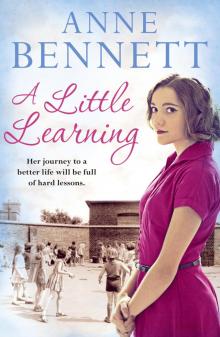 A Little Learning
A Little Learning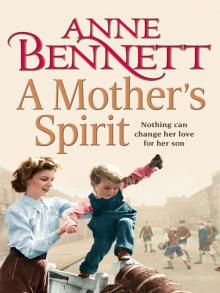 A Mother's Spirit
A Mother's Spirit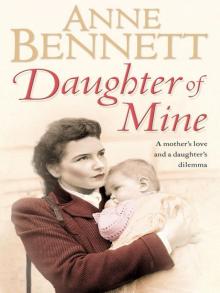 Daughter of Mine
Daughter of Mine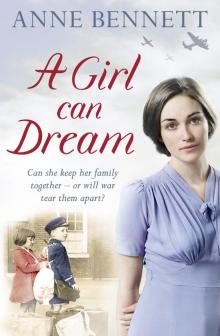 A Girl Can Dream
A Girl Can Dream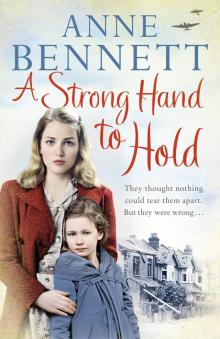 A Strong Hand to Hold
A Strong Hand to Hold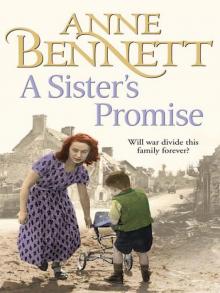 A Sister's Promise
A Sister's Promise To Have and to Hold
To Have and to Hold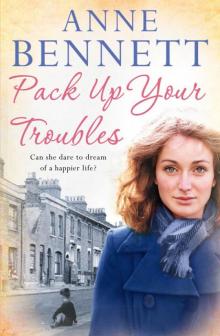 Pack Up Your Troubles
Pack Up Your Troubles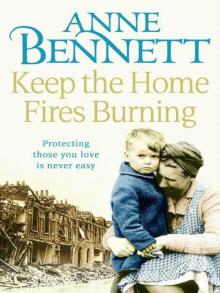 Keep the Home Fires Burning
Keep the Home Fires Burning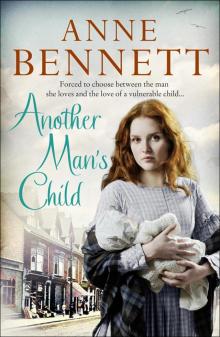 Another Man's Child
Another Man's Child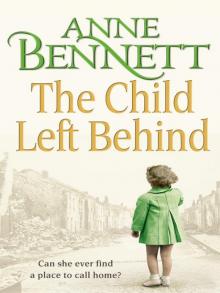 The Child Left Behind
The Child Left Behind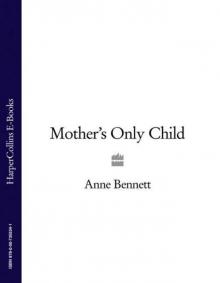 Mother’s Only Child
Mother’s Only Child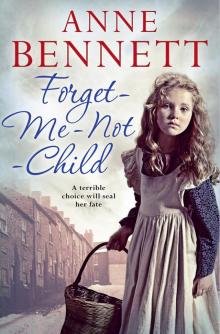 Forget-Me-Not Child
Forget-Me-Not Child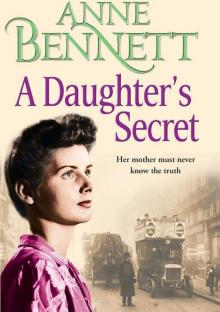 A Daughter's Secret
A Daughter's Secret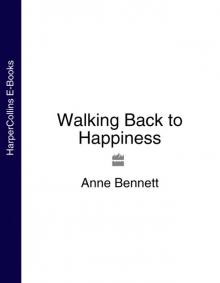 Walking Back to Happiness
Walking Back to Happiness Far From Home
Far From Home Till the Sun Shines Through
Till the Sun Shines Through